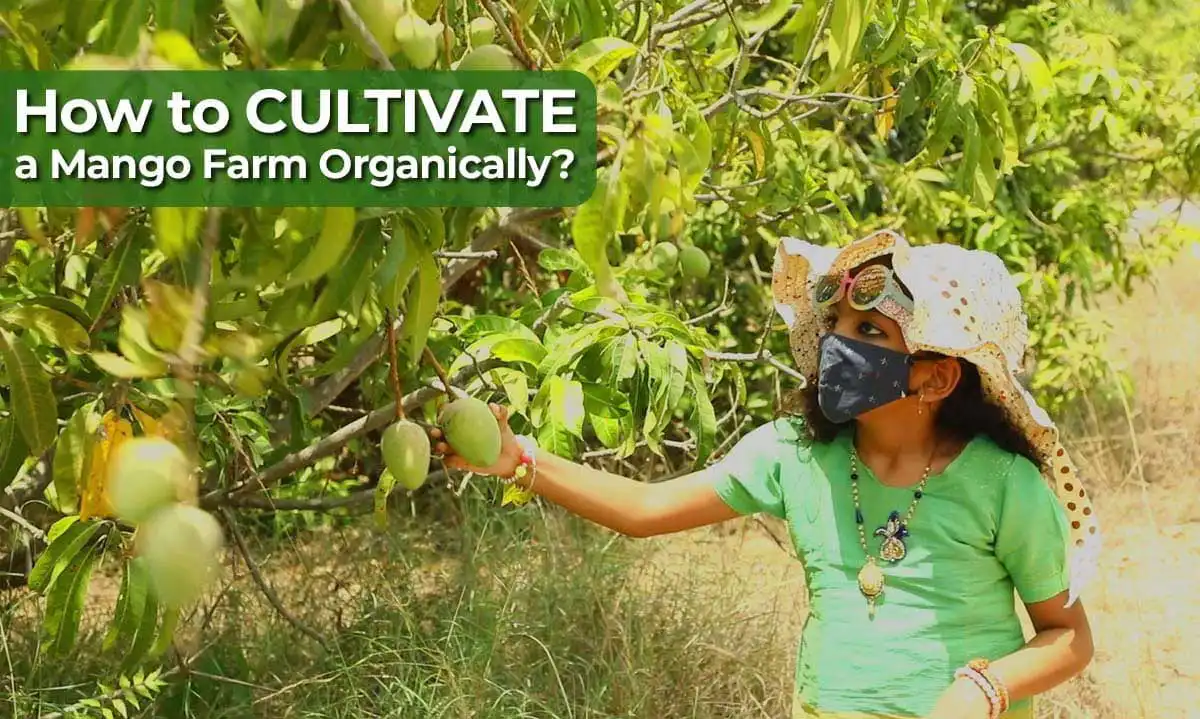How to Cultivate a Mango Farm Organically

Organic farming is an agricultural approach that emphasizes sustainable and natural methods of cultivating crops and raising livestock. It aims to minimize the use of synthetic inputs such as chemical fertilizers, pesticides, and genetically modified organisms (GMOs). Instead, organic farming focuses on working in harmony with nature, promoting soil fertility, biodiversity, and ecological balance.
A mango farm is the cultivation and production of mangoes as a commercial crop. Many countries with tropical climates, such as India, Mexico, Thailand, and the Philippines, are major producers of mangoes. Mangoes are a very popular fruit and are increasingly becoming a major export crop due to their flavorful and nutritious qualities. The major components of a successful mango farm are selecting the right variety, soil and climate, water management, pest and disease management, and harvesting and packing.
Cultivating a mango farm organically involves several key steps and practices. Here's a general steps to help you get started:
Site Selection:
Choose a location with well-drained soil and good sunlight exposure.
Avoid areas prone to waterlogging or extreme weather conditions.
Variety Selection:
Select mango varieties that are suitable for your climate and soil conditions.
Consider disease-resistant varieties to minimize the need for pesticides.
Soil Preparation:
Conduct a soil test to determine its nutrient composition and pH level.
Improve soil fertility by adding organic matter such as compost or well-rotted manure.
Planting
Plant mango trees during the appropriate season when the soil is warm and frost-free.
Make a hole that can comfortably hold the root system without being crowded.
Place the tree in the hole and backfill it with soil, ensuring the graft union is above the soil level.
Watering
Provide adequate irrigation, especially during dry spells.
Refrain from overwatering to prevent root rot.
Mulch around the base of the trees to conserve moisture and suppress weed growth.
Fertilization
Apply organic fertilizers, such as compost or well-rotted manure, to supply essential nutrients.
Use natural sources of nutrients like bone meal, fish emulsion, or seaweed extracts.
Follow recommended dosage rates and timing based on soil test results.
Weed and Pest Management:
To avoid resource competition, regularly pull weeds.
Use organic weed control methods like mulching, hand weeding, or flame weeding.
Encourage pest-controlling birds and beneficial insects.
Monitor for pests and diseases and use organic insecticides or fungicides only when necessary.
Pruning and Training:
Prune mango trees to shape them and promote good airflow.
Remove dead or diseased branches promptly.
Train the trees to a suitable form, such as an open center or modified central leader.
Harvesting
Allow the mango fruits to ripen on the tree fully for the best flavor.
Harvest the fruits carefully to avoid bruising or damaging them.
Post-Harvest Handling:
Store harvested mangoes in a cool, well-ventilated area.
Important Ways to Grow Organic Mangoes
Use proper packaging materials to protect the fruits during transportation.
Remember, organic farming practices rely on building a healthy ecosystem and minimizing the use of synthetic inputs. Regular observation, soil health management, and sustainable practices are vital for successful organic mango cultivation.
Growing organic mangoes involves specific practices to ensure the trees are cultivated without the use of synthetic pesticides, fertilizers, or genetically modified organisms (GMOs). Here are some important ways to grow organic mangoes:
Soil Preparation:
Conduct a soil test to assess its nutrient composition and pH level.
Improve soil fertility by adding organic matter such as compost, well-rotted manure, or cover crops.
Maintain proper soil drainage to prevent waterlogging.
Organic Fertilisation:
Utilise natural sources of nutrients like compost, manure, or organic fertilizers.
Apply fertilizers based on the mango tree's growth stage and the soil's nutrient requirements.
Consider supplementing with amendments like rock phosphate or bone meal to address specific nutrient deficiencies.
Weed Management:
Control weeds manually through mulching or hand weeding.
Apply organic mulch around the base of the mango trees to suppress weed growth and conserve moisture.
Avoid chemical herbicides or opt for organic-approved herbicides, if necessary.
Pest and Disease Control:
Monitor the mango orchard regularly for pests and diseases.
Implement integrated pest management (IPM) practices, which may involve introducing beneficial insects or using organic-approved pest control measures.
Prune trees to improve airflow and reduce susceptibility to diseases.
Water Management:
Encourage natural pollinators such as bees and other insects to aid in the pollination process.
Plant flowering plants nearby to attract pollinators to the mango orchard.
Harvesting
Allow mango fruits to ripen fully on the tree for optimal flavor and sweetness.
Harvest the mangoes carefully to avoid bruising or damaging the fruit.
Certification
Consider obtaining organic certification from relevant certification bodies to verify and market your organic mangoes. Remember, organic mango farming emphasizes sustainable and environmentally friendly practices that work in harmony with nature. Regular monitoring, soil health management, and promoting biodiversity are key to successful organic mango cultivation.
Latest Blog
JOIN OUR COMMUNITY !
Stay connected with Getfarms! Follow us on social media for the latest updates, exclusive offers, and a glimpse into the world of farmhouse living. Join our community today




























